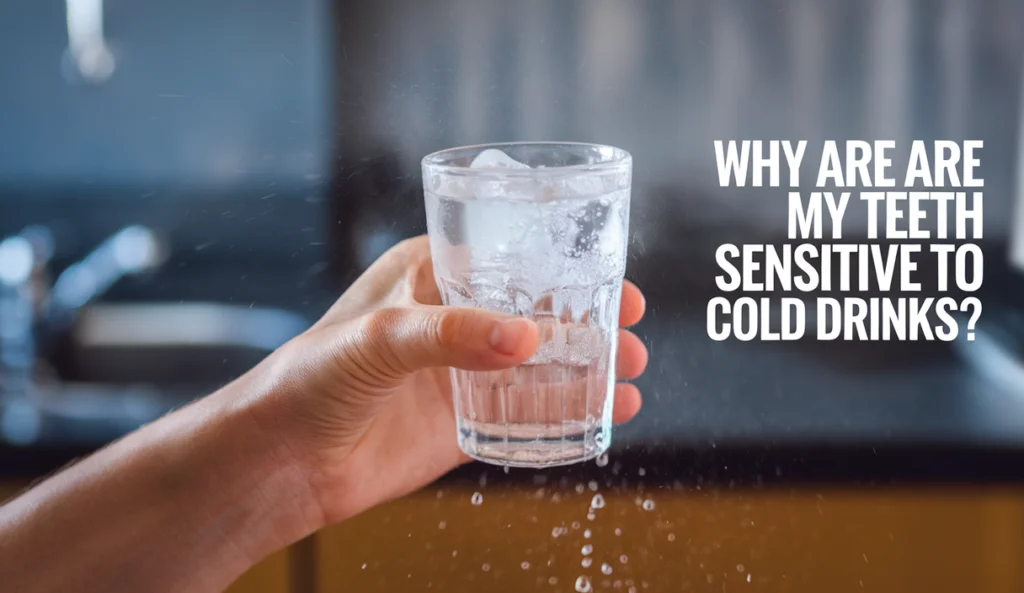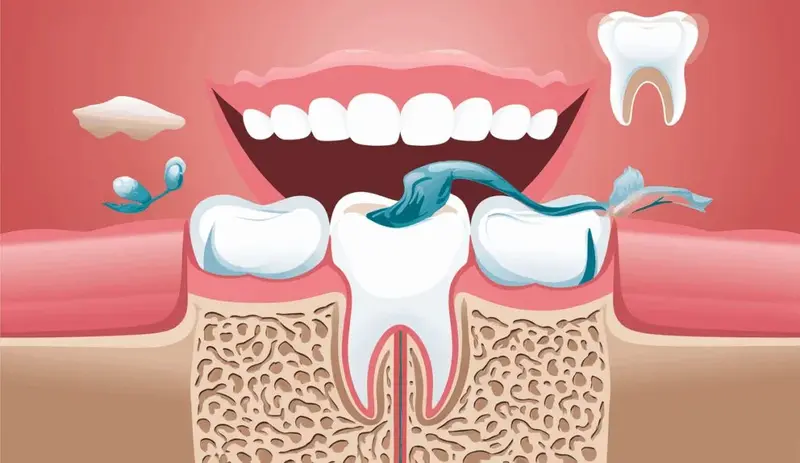
You’re enjoying a perfect summer day, and all you want is an ice-cold smoothie. But the moment it touches your teeth, you’re hit with a jolt of pain so sharp it makes you want to drop the entire drink. What gives? Why do your teeth suddenly act like they’re throwing a tantrum every time something cold touches them? Don’t worry – you’re not alone.
Tooth sensitivity is super common, and there are real reasons behind why this happens. In this guide, we’ll break down exactly what’s going on in your mouth and how you can get back to enjoying your favorite cold treats without feeling like you’re being stabbed by tiny ice picks.
What’s Really Causing Your Tooth Sensitivity?
Let’s discuss something many individuals encounter yet seldom comprehend: tooth sensitivity. The sharp, sudden pains when you consume something cold aren’t just happenstance; they’re your teeth broadcasting an urgent message.
Most people consider tooth sensitivity to be no big deal, just an unavoidable annoyance anyone might experience. But here’s the thing: If you’re dealing with sensitive teeth, your oral health is likely at risk. And who knows what’s happening beneath the surface of your teeth while you live with this pain?
Your Tooth Enamel: The Unsung Hero (and Potential Villain)
Envision tooth enamel as a shield that protects your teeth like a superhero. Enamel is tough, but it’s not invincible.
When this layer of protection gets breached, every damn thing feels like it’s under siege and trying to take you down. Cold drinks, hot coffee, even a brisk wind can trigger that sharp, annoying sensation that you try not to think about but end up thinking about all too often.
Most people don’t realize this: daily habits can wear down this crucial defense. Eating acidic foods, brushing too hard, and grinding your teeth at night (just to name a few) can create tiny cracks and weaken your enamel. It’s like taking a tough, protective wall and slowly chipping away at it until you can see the fragile, sensitive structures behind it.
You May Like: Can You Heal a Cavity Without Going to the Dentist?
Brushing Technique: You Might Be Doing It Wrong
Let’s face it, your brushing might be doing more harm than good. Those vigorous, hard scrubbing motions you think are cleaning your teeth? They’re creating tiny fractures in your enamel.
Dentists at LifeWorks Dental recommend gentle, circular motions with a soft-bristled brush. They also recommend thinking of the act of brushing somewhat like polishing a delicate surface, not scrubbing a tough stain.
Here’s what this means for you. Most likely, you’ve been brushing too hard and without the knowledge that what you were doing could actually be harmful.
Switching to a softer technique with a brush that’s been designed for use with sensitive teeth can make a massive difference, not just in the way your mouth feels but in the long-term preservation of natural tooth protection.
When to Worry: Signs You Need a Dentist
Tooth sensitivity is not uniform. Some kinds of it are just minor annoyances, while others may signal serious dental problems. If you’re having ongoing pain, unusually long-lasting sensitivity, or are also experiencing some kind of swelling, you need to see a dentist near you (check out our Google Maps location).
Dental visits should be scheduled sooner rather than later if any of the following occur:
- Teeth that are sensitive for longer than a week
- Teeth that hurt when biting or chewing
- Teeth that have visible holes or very dark spots
- Gums that are swollen or bleeding
Quick Fixes to Reduce Tooth Sensitivity
Let us delve into the practicality of the situation. Although an instant miracle cure does not exist, a number of strategies can meaningfully decrease the occurrence of sensitive teeth:
Select a desensitizing toothpaste that contains potassium nitrate. These specialized formulations work by blocking pain signals from your tooth’s surface to the center of the tooth where the nerves live. They’re not an overnight solution, but they can provide real relief.
Also think about what you eat. You might need to reduce how much acidic food and drink you consume. Citrus fruits and drinks, sodas, and even wine can add to enamel erosion.
If you enjoy these, make sure you balance them with more basic foods (think bananas instead of their more acidic citrus cousins) and rinse your mouth with water afterward. And as for whitening products: Be careful. They can sometimes make your teeth feel even more sensitive.
A fluoride mouthwash and a toothbrush with soft bristles can also serve to shelter and reestablish the mineral content necessary to keep your tooth enamel strong. It is something like adding an extra layer of strength to your teeth on a daily basis.
Tooth sensitivity isn’t something you have to just “live with.” Understand its causes and take proactive steps, and you can make a world of difference in your dental health and comfort.
Tooth sensitivity doesn’t have to be your new normal. By understanding what’s happening and taking some simple steps, you can get back to enjoying cold drinks without that dreaded wince. Remember, your teeth are trying to tell you something – it’s time to listen.
If the pain is persistent or getting worse, don’t just google solutions. Schedule a quick dental checkup. Sometimes, what seems like a minor issue can be a sign of something more significant.





